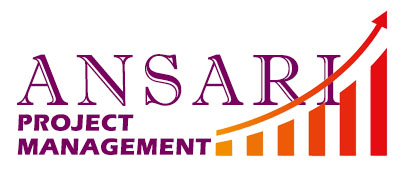1. Why should I study the book Nutrition during pregnancy?
- Proper nutrition plays a crucial role in supporting fetal growth and development.
- Understanding nutritional needs during pregnancy can help prevent complications and promote a healthy pregnancy journey.
2. How can studying Nutrition during pregnancy help me?
- It allows you to make informed dietary choices that provide optimal nutrition for both you and your baby.
- Through studying nutrition, you can learn about essential nutrients required during pregnancy and how they contribute to fetal development.
- It helps you develop strategies to maintain a healthy weight and manage pregnancy-related discomforts.
3. What are some common problems during pregnancy related to nutrition?
- Inadequate weight gain: Studying nutrition can help you understand the appropriate weight gain guidelines for a healthy pregnancy and avoid excessive or inadequate weight gain.
- Iron deficiency anaemia: Learning about iron-rich foods and how to enhance iron absorption can prevent or address iron deficiency anaemia, a common issue during pregnancy.
- Gestational diabetes: Proper nutrition education can help prevent or manage gestational diabetes through balanced eating plans and blood sugar monitoring.
4. How can studying Nutrition during pregnancy help address these problems?
- Studying nutrition enables you to choose a well-balanced diet that meets the increased nutritional demands during pregnancy.
- You can learn about specific foods and nutrients that support healthy weight gain and provide important nutrients for fetal development.
- By understanding carbohydrates, sugars, and portion control, you can manage blood sugar levels effectively and prevent gestational diabetes.
5. What is the necessity of studying Nutrition during pregnancy in my life?
- It ensures that you provide the necessary nutrients for your baby's growth and development.
- Good nutrition during pregnancy promotes your own well-being, increases energy levels, and reduces the risk of certain complications.
- Studying nutrition equips you with knowledge to make informed choices that support the long-term health of both you and your child.
6. How can studying Nutrition during pregnancy contribute to the baby's development?
- Adequate nutrient intake during pregnancy supports the baby's brain development, bone formation, and organ growth.
- Specific nutrients like folic acid and omega-3 fatty acids play vital roles in fetal neural development and help prevent birth defects.
7. What impact can studying Nutrition during pregnancy have on my overall pregnancy experience?
- It can reduce the chances of experiencing common pregnancy discomforts such as nausea, constipation, and fatigue.
- Proper nutrition can enhance your immune system, reducing the risk of infections that may impact pregnancy outcomes.
8. How can studying Nutrition during pregnancy help in managing pregnancy cravings?
- Understanding the link between nutrient deficiencies and cravings can help you identify healthier alternatives.
- Learning how to balance indulgences with nutritious meals and snacks can satisfy cravings while meeting your nutritional needs.
9. What role does studying Nutrition during pregnancy play in preventing pregnancy complications?
- It helps you identify and avoid potentially harmful foods or substances that can pose risks during pregnancy, such as certain seafood, unpasteurized dairy products, and alcohol.
- Studying nutrition assists in managing conditions like preeclampsia and gestational hypertension through appropriate dietary choices.
10. How can studying Nutrition during pregnancy contribute to postpartum recovery?
- Proper nutrition during pregnancy can help you maintain a healthy weight, making it easier to return to pre-pregnancy weight after delivery.
- Adequate nutrient intake supports the healing process, boosts energy levels, and aids breastfeeding.

a healthy weight during pregnancy
11. What are the benefits of studying nutrition during pregnancy?
- Understanding how to create a healthy diet for both mother and baby
- Reducing the risk of complications during pregnancy and childbirth
- Promoting healthy fetal growth and development
- Reducing the risk of long-term health problems for the baby
12. How can studying nutrition during pregnancy help me prepare for childbirth?
- Learning about foods that can help induce labor and promote a healthy delivery
- Understanding the importance of staying hydrated during labor
- Knowing which foods to avoid during labor to prevent discomfort and complications
13. How can proper nutrition during pregnancy impact my baby's health in the long run?
- Reducing the risk of chronic diseases such as obesity and diabetes
- Promoting healthy brain and cognitive development
- Reducing the risk of developmental delays and disorders
14. What are common nutritional deficiencies during pregnancy and how can they be addressed?
- Iron deficiency anemia can be addressed by increasing iron-rich foods such as red meat, spinach and fortified cereals.
- Folic acid deficiency can be addressed by taking supplements and eating foods high in folic acid such as leafy greens and citrus fruits.
- Calcium deficiency can be addressed with calcium-rich foods such as milk, cheese, almonds, and tofu.
15. What is gestational diabetes and how can proper nutrition help prevent it?
- Gestational diabetes is a type of diabetes that can occur during pregnancy.
- Proper nutrition can help prevent gestational diabetes by maintaining healthy blood sugar levels through a balanced diet rich in fiber, protein, and healthy fats.
16. How can proper nutrition during pregnancy impact my own health and well-being?
- Reducing the risk of pregnancy-related complications such as preeclampsia and gestational diabetes
- Promoting healthy weight gain and reducing the risk of obesity
- Reducing the risk of postpartum depression
17. What foods should I avoid during pregnancy?
- Raw or undercooked meats, fish, and eggs
- Unpasteurized dairy products
- Certain types of fish high in mercury
18. How much weight should I gain during pregnancy and how can proper nutrition help with that?
- The amount of weight you should gain during pregnancy depends on your pre-pregnancy body mass index (BMI).
- Proper nutrition can help you maintain a healthy weight during pregnancy and prevent excessive weight gain by focusing on nutrient-dense foods and avoiding empty calories.
19. What tips are there for dealing with common pregnancy-related digestive issues such as nausea and constipation?
- Eating small, frequent meals throughout the day
- Staying hydrated with water and hydration-rich foods such as fruits and vegetables
- Increasing fiber intake with whole grains, fruits, and vegetables
20. How can proper nutrition during pregnancy help prevent preterm labor?
- Eating a balanced diet rich in essential nutrients such as iron, calcium, and folic acid can help prevent preterm labor.
- Avoiding certain dietary behaviors such as smoking and excessive caffeine intake can also help prevent premature labor.

help ensure adequate breast milk production and improve the quality of breast milk
21. How can nutrition during pregnancy impact my breast milk production and quality?
- Proper nutrition during pregnancy can help ensure adequate breast milk production and improve the quality of breast milk.
- Eating a nutrient-dense diet rich in protein, healthy fats, and hydrating foods can also help improve milk production.
22. What are the risks of not getting proper nutrition during pregnancy?
- Increased risk of pregnancy-related complications such as preeclampsia and gestational diabetes
- Increased risk of preterm labor and low birth weight
- Negative impact on the baby's brain and cognitive development
23. How can proper nutrition during pregnancy impact my baby's ability to breastfeed?
- Proper nutrition during pregnancy can improve the baby's ability to breastfeed by promoting healthy brain and cognitive development.
- Additionally, eating a nutrient-dense diet during pregnancy can help ensure a steady supply of breast milk for the baby.
24. What foods should I focus on eating during pregnancy?
- Leafy greens, such as spinach and kale
- Whole grains, such as quinoa and brown rice
- Lean proteins, such as chicken and fish
- Fruits and vegetables of all colors
25. How can proper nutrition during pregnancy help prevent birth defects?
- Eating a diet rich in folic acid and other essential nutrients can help prevent birth defects such as neural tube defects.
26. What are the risks of excessive weight gain during pregnancy and how can proper nutrition help prevent it?
- Excessive weight gain during pregnancy can increase the risk of gestational diabetes and preterm labor.
- Proper nutrition can help prevent excessive weight gain by focusing on nutrient-dense foods and avoiding empty calories.
27. What are the risks of not getting enough protein during pregnancy?
- Not getting enough protein during pregnancy can increase the risk of low birth weight and preterm labor.
- Additionally, protein is essential for the baby's brain development and growth.
28. How can proper nutrition during pregnancy impact my baby's dental health?
- Eating a balanced diet rich in essential nutrients such as calcium can help promote healthy dental development in the baby.
- Conversely, a diet high in sugar and empty calories can increase the risk of dental problems in the baby.
29. Are there any special dietary considerations for pregnant women with food allergies or sensitivities?
- Pregnant women with food allergies or sensitivities should consult with a healthcare provider and a registered dietitian to create a balanced diet that meets their specific needs.
- It may be necessary to take dietary supplements and avoid certain foods to prevent allergic reactions or other complications.
30. How can proper nutrition during pregnancy impact my baby's immune system?
- Eating a nutrient-dense diet during pregnancy can help improve the baby's immune system and reduce the risk of illness and infection.
- Additionally, certain nutrients such as vitamin C and zinc can help support a healthy immune system in both the mother and the baby.
In summary, studying nutrition during pregnancy is important for the health and well-being of both the mother and the developing baby. It helps prevent common pregnancy complications, supports fetal growth and development, and enhances the overall pregnancy experience. By understanding nutritional needs during this crucial time, you can make informed choices that promote a healthy pregnancy journey and set the foundation for lifelong wellness.
Dear Visitor; Please take a look at the list of 50 most visited websites in the world wide web: YouTube, Facebook, google, translate, gmail, weather, amazon, Instagram, cricbuzz, Hotmail, wordle, satta king, twitter, yahoo, yandex, sarkari result, Netflix, google maps, yahoo mail, roblox, whatsapp, NBA, BBC news, outlook, pinterest, flipkart, eBay, omegle, live score, tiktok, canva, ipl, premier league, hava durumu, ibomma, walmart, twitch, ikea, shein, linkedin, home depot, e devlet, lottery, snaptik, cricket, serie a, nfl, spotify, fox news, amazon prime; There is no book publishing related or project management website in this list. We are working hard to bring these important issues to the center of concentration of societies. Please introduce us via social media, share our website with others and help us to make our world a better place to live. Best Regards.













Write your review